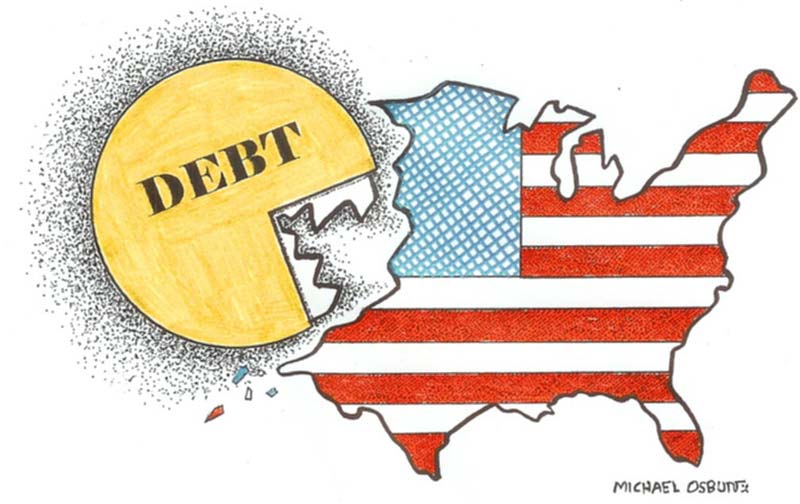
President Donald Trump tweeted his support for the deal, writing: "I am pleased to announce that a deal has been struck with Senate Majority Leader Mitch McConnell, Senate Minority Leader Charles E. Schumer, Speaker of the House Nancy Pelosi, and House Minority Leader Kevin McCarthy - on a two-year Budget and Debt Ceiling, with no poison pills...This was a real compromise in order to give another big victory to our Great Military and Vets!"
It is important to remember, though, that just because Trump is for the deal now does not mean he won't change his mind later. But this latest budget episode proves that the ways of Washington remain the same. Specifically, whoever wants to spend the most wins.
Assuming that Trump sticks with the agreement, a few days of angst are sure to follow, and smart analysis will be written about the dangers of overspending, the consequences to come and so on. But politically, at least in the short term, the deal is a net-plus.
Republicans can avoid both the spectacle of a government shutdown and the unflattering exercise of pointlessly arguing to curb spending through the next election. Democrats can boast about the additional spending; some will even say that it is too little.
Meanwhile, conservative Republicans in Congress and in the commentariat will decry the lack of spending restraint. But, as usual, budget cutters do not have the votes. The fact is that few in Washington - and throughout the country - care about spending levels anymore.
The latest Gallup poll says that only 2 percent of Americans believe the federal debt and deficit is the most important issue facing the country today. It seems that few see the nation's debt and deficit as issues that affect them.
Our politicians have moved beyond any hesitation about spending other people's money. Instead, the political atmosphere today has produced a sense that the government is spending nobody's money. Our deficits and debt do not really belong to anyone, and a day of reckoning is nowhere close.
The fact that public concern about the deficit has fallen even as the deficit continues to grow suggests something troubling about the state of our country. And considering how deficit reduction has declined as a priority among both Republicans and Democrats, one can only expect that even greater spending is on the horizon regardless of who wins the presidency in 2020 or which party takes control of the House or Senate.
There was a time when Congress and the administration went through the motions of adhering to a budget reconciliation process, but Monday's deal is a step away from that. The bottomless pit of government spending has gotten even deeper, and there is no sign of it stopping any time soon.
Every weekday JewishWorldReview.com publishes what many in the media and Washington consider "must-reading". Sign up for the daily JWR update. It's free. Just click here.
Ed Rogers is a a political consultant and a veteran of the White House and several national campaigns. He is the chairman of the lobbying and communications firm BGR Group, which he founded with former Mississippi Gov. Haley Barbour in 1991."


 Contact The Editor
Contact The Editor
 Articles By This Author
Articles By This Author